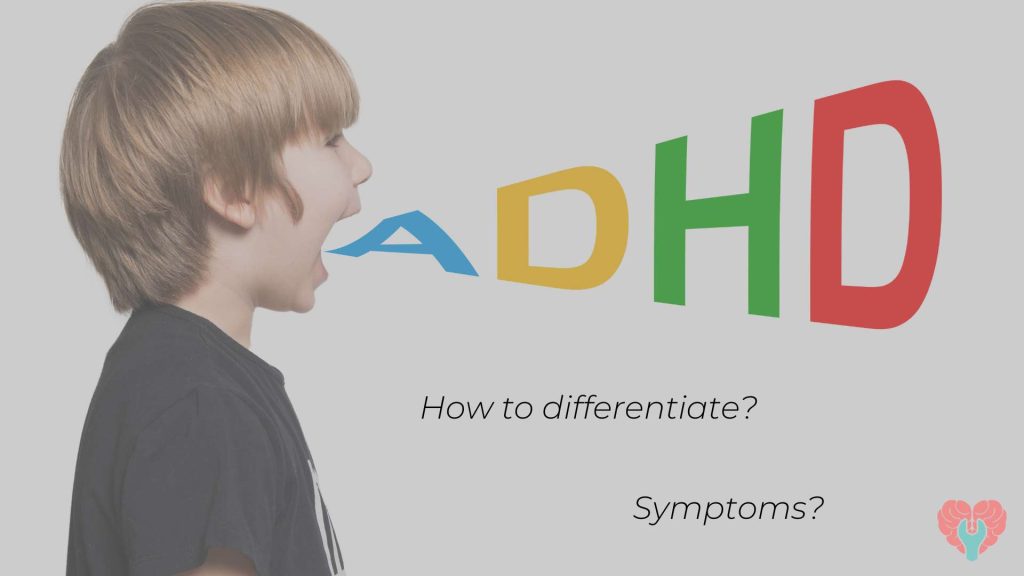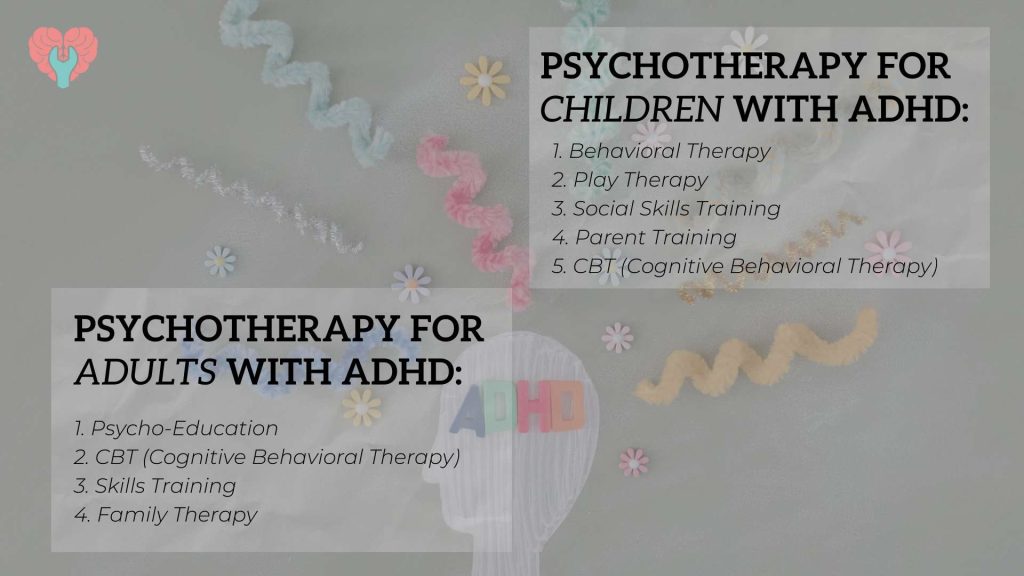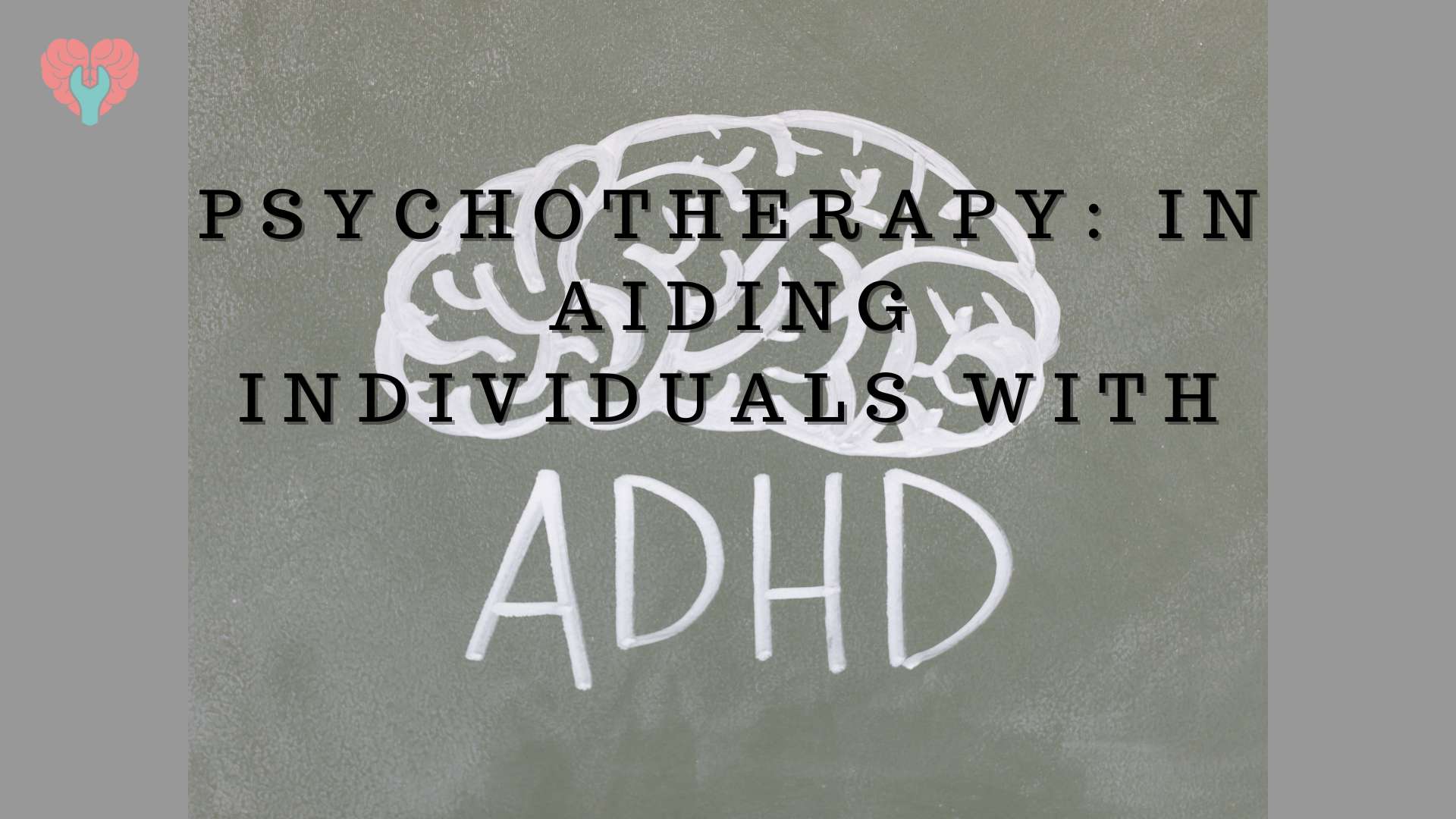Psychotherapy for Individuals with ADHD
Psychotherapy for Individuals with ADHD
In this article, we will be discussing Psychotherapy for individuals with ADHD.
"ADHD", is a term we use to label active children. We have often come across children or adults who are very active and high on energy. Sometimes active children worry their parents or caretakers because they constantly engage in one activity or another. Often, these individuals are labelled as ‘ADHD’ due to their active nature without understanding the true meaning and symptoms of ADHD and without a proper medical or mental health practitioner diagnosis. We often mismatch the meaning between being active and hyperactivity.

What ADHD actually is?
Attention Deficit Hyperactivity Disorder (ADHD) is a neuro-developmental disorder common among children and may continue developing among adults. Individuals with ADHD are categorized by impulsivity, hyperactivity and persistent inattention that affects their development and daily functioning.
ADHD Presentation Categories
1. Predominantly Inattentive Presentation.
Symptoms:
- Difficulty paying attention to task details or following instructions.
- Difficulty focusing and easily distracted.
- Difficulty organizing activities or daily tasks.
- Often forgets, loses, or misplaced things.
- Frequently make careless mistakes.
2. Predominantly Hyperactive or Impulsive Presentation.
Symptoms of Hyperactive:
- Restlessness, fidgeting, squirming and excessive motor (e.g. hands or feet) movement.
- Difficulty to remain seated and tendency to constantly move (likes to keep themselves in motion).
- Talk excessively and often interrupt others.
- Difficulty relaxing and engaging in activities quietly.
- Feeling an internal sense of restlessness.
Symptoms of Impulsivity:
- Answer or react before questions are finished.
- Tendency to interrupt conversations and intrude on others.
- Difficulty waiting for turns or queuing.
- Difficulty to self-regulate, self-control, and impulse control.
- Risk-taking or impulsive behaviours without considering consequences.
3. Combined Presentation.
Symptoms of inattention and hyperactivity/impulsivity are present and significant.
Note: It is vital to note that experiencing some of the symptoms listed above may not represent one as having ADHD. It is not advisable to self-diagnose and consult a professional mental health practitioner for further diagnosis and assistance.
As we navigate the challenges of ADHD symptoms, seeking treatment can be helpful in managing them effectively. There are various options available, including medications, psychotherapy, or a combination of both. While medication can help stabilize symptoms, psychotherapy is often regarded as one of the most effective treatments for ADHD. Through psychotherapy, we can gain a better understanding of ourselves. Moreover, we can gradually come to accept ourselves and develop personalized coping strategies that work best for us.

Psychotherapy for Adults with ADHD:
1. Psycho-Education
The most crucial part of psychotherapy is to educate and bring awareness to individuals experiencing ADHD and their close ones about what ADHD is, the symptoms, possible causes, triggers, effects, and possible coping strategies. Through psycho-education, we are able to understand ourselves better as the symptoms and severity of ADHD may differ from one another, which helps us to develop healthy coping skills. It also aids us in being aware of the myths and misconceptions regarding ADHD.
2. CBT (Cognitive Behavioral Therapy)
Through Cognitive Behavioural Therapy (CBT), we are able to explore and identify thoughts that further hinder our daily lives or intensify our ADHD symptoms. By identifying unhealthy thoughts, we can gradually modify or change them and develop skills to improve the intensity of our symptoms through better time management, organization of daily tasks, and problem-solving skills with the assistance of a trained therapist. Cognitive Behavioural Therapy also assists individuals with ADHD to further work on their self-esteem issues, emotional regulation, and many more related aspects.
To learn more about Cognitive Behavioural Therapy, you may read the article here.
3. Skills Training
Skills training and coaching individuals with ADHD is a psychotherapy approach that explores and structures specific areas of interpersonal development and social life that are affected by the assistance and support of our trained therapists. Therapists also assist us in setting simple and achievable goals, breaking our tasks smaller, organizing goals into short-term and long-term goals, developing coping strategies for the symptoms, and many more.
4. Family Therapy
Like other neuro-developmental issues, ADHD also greatly impacts the family and close ones of individuals with ADHD. Family Therapy would educate family members on ADHD, how to improve communication, explore issues that arise due to ADHD, and develop healthy strategies to cope with it with a family therapist's assistance. In short, Family Therapy helps us and our family to understand and support each other and create a safe and comfortable home environment.
Psychotherapy for Children with ADHD:
1. Behavioral Therapy
Behavioural Therapy aims to modify specific unhealthy and rigid behaviours of children with ADHD with the assistance of a child therapist. It involves behaviour modification techniques, often utilizing a rewards and consequences system to develop positive behaviours and gradually decrease or eliminate unhealthy behaviours. This type of therapy further helps children with ADHD to learn to organize their tasks, time, and complete the tasks given to them.
2. Play Therapy
Play therapy is another form of psychotherapy that works best among children with ADHD to express themselves and their emotions through play, as it provides them with a safe and calm space to explore their emotions with a play therapist or a child therapist. A play/child therapist usually incorporates fun and engaging activities with play therapy to control the impulsivity of children with ADHD, gradually develop their self-awareness through exploring and feeling different textures through the play, learn problem-solving skills and increase their social skills.
3. Social Skills Training
Most children with ADHD find initiating or maintaining interactions with their family and friends challenging. Through social skills training, a trained therapist would guide them to develop social behaviours appropriate for their age and severity of ADHD, such as showing non-verbal or verbal cues, learning to wait and take turns, and understanding simple non-verbal and verbal communication from others. Modelling (e.g. illustrating how to stay and take turns) and guided practice (e.g. doing it together/holding their hands) are often utilized in social skills training to assist children with ADHD in developing their social skills with others around them.
4. Parent Training
Like Family Therapy, Parent Training is also a part of psychotherapy that would benefit parents with ADHD children. New parents might be very anxious and clueless when their child is diagnosed with ADHD. Through parent training, they are able to understand their child’s ADHD and learn practical strategies to manage their symptoms at home. This training is often conducted by trained therapists, who educate and train the parents on their child’s behaviour modification, creating and sticking to routines, improving their verbal and non-verbal communication, and implementing necessary disciplinary techniques to aid their child’s progress and development.
5. CBT (Cognitive Behavioral Therapy)
Similar to adults, CBT can be utilized for older children diagnosed with ADHD, who are verbal and have developed cognitively to assist them in identifying and modifying their unhealthy thoughts. It further helps them to manage their impulsivity, and increase their tolerance and patience, self-esteem, and emotional regulation with the assistance of a trained mental health therapist.
Thus, we can see that the impact of ADHD does not limit itself to just affecting our personal development, but it continues to affect our relationships, careers, education and many more. Therefore, it is crucial for us to seek help from licensed mental health professionals. This can allow us to receive the diagnosis, treatment, and support we need to cope with ADHD. Through Psychotherapy, we will be able to work alongside our therapist to develop a personalized treatment plan. This is simply because the symptoms and severity of ADHD vary among individuals.
If our loved ones are experiencing ADHD, we must provide them with emotional support and a safe space for them to heal. Suggest they seek assistance from professional mental health therapists for further treatment. Parents should also be involved in the therapy as they play a significant role in the child's development. Their assistance with ongoing treatment strategies suggested by the therapist at home is crucial for their child's betterment. In short, ADHD symptoms can be managed with proper treatment and support.
If you enjoyed reading this, why not broaden the horizon of knowledge by learning about "Disenfranchised Grief"?
You can read the blog here.
For more content related to mental health do follow us on our official Instagram.

